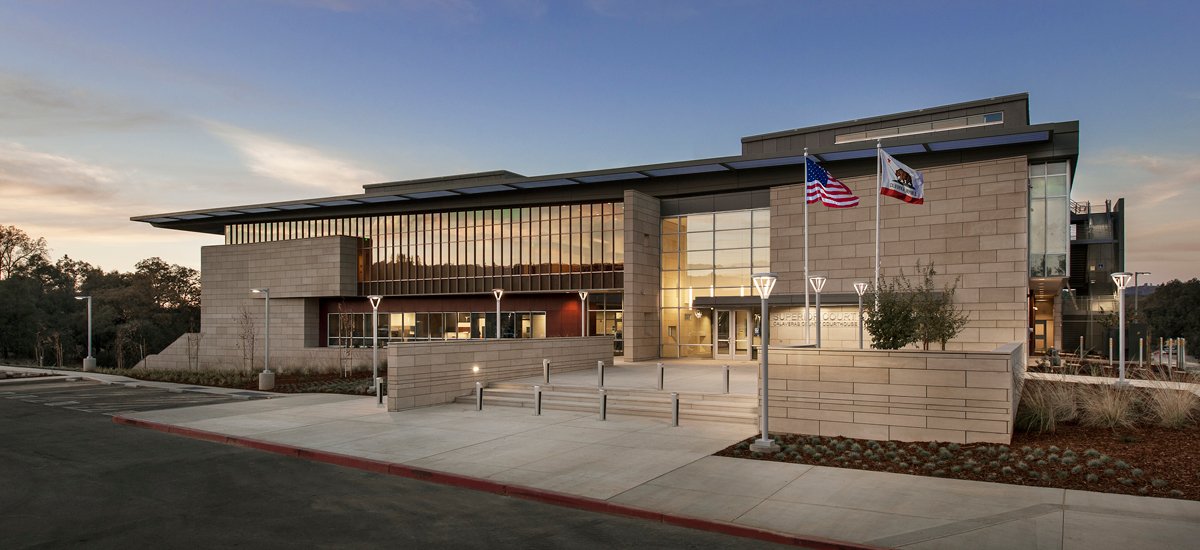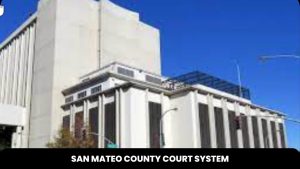Calaveras County Courthouse
Superior Court of Calaveras
The Superior Court of Calaveras County is the judicial branch of California state government serving Calaveras County. As the trial court of general jurisdiction, it handles all civil, criminal, family law, probate, and juvenile cases arising in the county. The court has a long history dating back to shortly after California became a state in 1850. While located in a small, rural county, the Superior Court of Calaveras plays an important role in providing justice, protecting rights, resolving disputes, and deterring crime in the local community.
History of the Calaveras County Courthouse
Establishment in 1850
The Superior Court of Calaveras County was established by the California State Legislature shortly after California became the 31st state in 1850. Under the state constitution and laws, each county was required to have a superior court to exercise broad jurisdiction over legal matters. Calaveras County was one of the original 27 counties designated at statehood, so a county superior court was quickly created.
Early years and development
During the early years, the Superior Court of Calaveras County shared facilities with the county government. Judges would often ride circuit between various towns and mining camps throughout the county to hold proceedings in makeshift courtrooms. Docket books were transported by horseback to record cases in each location. This continued until 1860 when a dedicated courthouse was constructed in the county seat of San Andreas.
Over the decades, the Superior Court gradually expanded to keep pace with the county’s growth. More judges were added, and courthouse facilities were enlarged. Branch courthouses were also established in outlying county towns. The court developed modern case management procedures and adopted updated court rules and local practices as the law evolved.
Jurisdiction and powers
The jurisdiction for Calaveras is Calaveras County Superior Court
All matters are handled at the main courthouse in San Andreas.
Civil jurisdiction
The Superior Court of Calaveras County exercises broad jurisdiction over civil legal actions, including cases involving contracts, personal injury, medical malpractice, property disputes, civil rights, toxic torts, and many other areas. Civil cases involve private disputes between two or more parties seeking money damages or court orders. Superior courts have original jurisdiction on civil cases with claims exceeding $25,000.
Criminal jurisdiction
The court handles all stages of felony criminal prosecutions including preliminary hearings, arraignments, pretrial motions, and trials by jury. Criminal jurisdiction includes violent crimes such as murder, robbery, and assault as well as white collar crimes such as fraud and embezzlement. Superior courts have original jurisdiction over all felony cases in California.
Family law jurisdiction
Family law matters under court authority include divorce, child custody and support, spousal support, adoptions, domestic violence restraining orders, and child welfare juvenile dependency cases. The family law department assists parties on issues related to dissolution of marriage, distribution of assets, and protection of children.
Calaveras County Superior Court Location, Hours, and Contact Info
The Calaveras Superior Court is an essential institution that plays a pivotal role in the legal system of San Andreas, California. Whether you’re involved in a legal case, need assistance with legal matters, or are simply curious about its operations, understanding the court’s location, hours of operation, and contact information is essential.
Calaveras Superior Court Location and facilities
Main courthouse in San Andreas
The main Superior Court courthouse is located in the county seat of San Andreas. This courthouse has three courtrooms hosting judges’ chambers, clerk offices, jury facilities, and court administration. The historic 1860 courthouse building was completely modernized in 2005.
Branch courthouses
To provide accessible justice to outlying areas, the Superior Court operates facility branches in Angels Camp, Murphys, and West Point. At these locations, judges hold hearings and trials for civil cases and misdemeanors arising in those regions of the county. Parties can file documents and obtain information at each branch court.
Address
Here is the official address of the Calaveras Superior Court:
Calaveras Superior Court 400 Government Center Drive San Andreas, CA 95249-9794
Hours of Operation
To better serve the community, the Calaveras Superior Court operates during specific hours on different days of the week. It’s important to be aware of these hours, especially if you plan to visit the court for any reason.
Courthouse Hours
The Calaveras Superior Court’s courthouse is open to the public from Monday through Friday. The operating hours are as follows:
- Monday through Friday: 8:00 a.m. – 4:00 p.m.
Clerk’s Office Hours
For those requiring assistance from the clerk’s office, the following hours apply:
- Window Hours (Monday through Friday): 8:15 a.m. – 3:00 p.m.
Phone Hours
If you prefer to reach out to the court via phone, you can do so during these hours:
- Monday through Friday: 8:15 a.m. – 4:00 p.m.
Self-Help Legal Center Hours
The Calaveras Superior Court also offers a Self-Help Legal Center to assist those navigating legal processes without legal representation. The center operates during the following hours:
- Monday through Friday: 8:15 a.m. to 12:15 p.m. and 1:00 p.m. to 3:00 p.m.
- Phones (Monday through Friday): 8:15 a.m. – 4:00 p.m.
Contact Information
For inquiries and assistance, you can contact the Calaveras Superior Court at their main phone number:
Main Phone Number
- Phone: (209) 754-9800
Court operations and staff
Judges
The Superior Court currently has 5 judges who are each elected to 6-year terms. The judges preside over trials, hearings, arraignments, and all other legal proceedings. Their decisions establish binding case law. Judges also have administrative duties for court management.
Court executive officer
The court executive officer oversees daily court operations, budget and finance, facilities, security, human resources, and automation. This administrator implements policies set by the judges. The CEO manages approximately 60 court employees across all locations.
Clerks and administrative staff
Superior court clerks maintain case files, accept filings, administer oaths, provide certified copies, issue warrants, and process judgments. Additional staff handles court reporting, interpreters, mediation, investigation, law library, and self-help center functions.
Court Proceedings and Calendars
Types of Cases and Hearings
The Superior Court handles a high volume and variety of cases each week and month. Daily court calendars include arraignments, preliminary hearings, and pre-trial conferences for criminal cases. Family law matters like divorces, child custody disputes, and adoptions are heard. Civil lawsuits have hearings, settlement conferences, and trials. Probate estate issues are also scheduled.
Calaveras County Superior Court Calendars
Upcoming court hearing schedules can be viewed online through the Calaveras County Superior Court website https://www.calaveras.courts.ca.gov/ Daily court calendars list specific cases, hearing types, assigned department, date, and start time. Calendars are posted weekly.
Understanding Courtroom Protocol
Those attending Superior Court proceedings should follow proper etiquette such as turning off phones, dressing respectfully, and speaking only when addressed by the judge. Audience members should stand when the judge enters and exits. Decorum ensures efficient operation.
Superior Court records
Civil case records
Civil case files contain the initiating documents and subsequent filings by parties such as complaints, answers, motions, and trial exhibits. Case dispositions such as verdicts, judgments, and settlements are also included. These records are maintained by case number for public inspection.
Criminal case records
Criminal case files include the charging documents, bail reports, pleadings, minutes of proceedings, orders made, and the judgment. Felony and misdemeanor dispositions are indexed for retrieval. The public can access most information, with restrictions on certain confidential documents.
Family Court Records
Family court records cover divorce proceedings, child custody disputes, and related matters. They contain information about spousal support, child support, and visitation agreements.
Probate Records
Probate records deal with the administration of estates after someone’s passing. They include wills, asset distribution, and estate settlements.
Calaveras County Courthouse Online Docket and Case Search
Using the Calaveras County Courthouse Website
The Calaveras County Courthouse offers an official website with a searchable database. Follow these steps to perform an online docket and case search:
- Visit the Calaveras County Courthouse website.
- Navigate to the “Court Records” or “Case Search” section.
- Enter the required information, such as the case number, names of the parties involved, or the date of the case.
- Review the search results and click on the relevant case for more details.
Third-Party Online Platforms
In addition to the official courthouse website, several third-party online platforms provide access to court records for a fee. These platforms offer user-friendly interfaces and advanced search options.
Understanding Docket Entries
Docket entries are essential components of court records. They contain crucial information about a case, including:
- Case Numbers and Titles
- Filing Dates
- Judge’s Name
- Parties Involved
- Case Status
Online case access
The Superior Court provides online case access through the California Courts Protective Order Registry and the California Courts Online Self-Help Center. These websites https://www.calaveras.courts.ca.gov/ allow users to search and review non-confidential civil and criminal cases.
Online Services Offered
The Superior Court offers a variety of services that can be accessed and utilized online, providing a convenient option for court users.
Accessing Case Information
Users can search for civil, family, probate, and criminal cases that are on file with the court. The online portal allows you to view calendar schedules, case details, party information, upcoming hearing dates, and documents filed for many cases.
Paying Fines and Fees
Individuals can pay traffic citations, civil assessments, criminal fines, and most other fees associated with their case online. The system accepts payment by credit card, debit card or electronic check.
Traffic Ticket Options
For qualifying traffic infractions, users can plead not guilty, guilty, or no contest. They can also sign up for traffic school or request an extension online rather than mailing in their request.
Self-Help Resources
The self-help section offers forms, information sheets, and interactive workshops to assist self-represented litigants. Users can also schedule appointments with Self-Help Center staff.
Benefits of Using the Online System
Utilizing the Superior Court’s online system provides many benefits that enhance public access and efficiency.
Convenience and Efficiency
The biggest benefit is the sheer convenience of remote access. Court users can accomplish tasks at any hour rather than being limited to courthouse operating times.
Saves Time and Money
By eliminating the need to travel to the courthouse in person, users save on time, transportation costs, parking fees, and missed work. The streamlined process is designed for efficiency.
User-Friendly Platform
The website and online portal have been designed to provide an intuitive, user-friendly experience. Info is easy to find and processes are straightforward.
Creating an Account
In order to access many of the Superior Court’s online services, you must set up a user account.
Registration Process
Registering for an account is a quick and easy process. You just need to provide your name, email address, date of birth, and create a password.
Account Security
When you register, you also provide challenge questions and contact info for account recovery purposes. The court takes security and privacy seriously.
Managing Your Account
Once registered, you can manage your account settings, save payment info for faster checkout, view order history, and sign up for email notifications.
Popular Online Services
Some of the most popular services that save court users time include:
Disputing a Traffic Ticket
For minor traffic offenses, drivers can plead not guilty and dispute their ticket online rather than attending an arraignment hearing in person.
Paying Traffic Fines
Drivers can conveniently pay their traffic ticket fines and civil assessments online by credit card or e-check.
Checking Case Status
Parties in a case can stay up-to-date on their case status, upcoming hearings, and filed documents by checking online.
Filing Court Documents
E-filing allows registered filers to submit documents electronically in many case types rather than filing paper documents.
Limitations to Be Aware Of
While the online system expands court access, there are some limitations users should be aware of.
System Downtime
Periodically, the website and online services may be unavailable due to system maintenance or technical issues.
Document Access Restrictions
Some case documents are not available online due to legal restrictions or confidentiality.
Lack of Online Hearings
Currently, court hearings themselves must still be attended in person and do not utilize online audio or video options.
Legal resources
Self-help center
The Superior Court operates a self-help center that provides free information and assistance to unrepresented parties on civil matters. Court users can obtain court forms, get help completing and filing them, and receive guidance on the legal process.
Alternative dispute resolution
Parties in civil disputes have access to alternative dispute resolution services like mediation and arbitration. These settlement options help resolve cases out of court. The self-help center offers referrals to low-cost mediation programs.
Law library
A public law library located in the San Andreas courthouse enables court users to perform legal research. Available resources include state and federal case law, statutes, regulations, practice guides, form books, and online legal databases.
Impact on the community
Access to justice
As an open and impartial forum, the Superior Court provides all community members equal access to justice. Individuals and businesses can enforce their rights or defend against claims. Unrepresented litigants receive assistance navigating the legal system.
Civic education
Courtroom programs, tours, and presentations help educate citizens on the judicial process and importance of the law. Exposure to court proceedings provides valuable civic learning experiences and promotes community participation.
Crime deterrence
The court helps deter crime by imposing meaningful consequences through speedy trials and stiff sentences for those convicted. Criminal prosecutions and harsh penalties for violent crimes and thefts demonstrate the court’s commitment to public safety.
Notable cases
Historic cases
In its lengthy history, the Superior Court has adjudicated several high-profile cases. In 1872, the court heard a dispute over mining rights that impacted large swaths of Calaveras County. Another 19th century case involved a prominent politician accused of corruption and bribery.
Recent high-profile cases
More recently in the 1990s, the court presided over a lengthy trial against a large agricultural business accused of polluting groundwater. The court gained national attention in the 2000s for its ruling on a technology patent infringement case involving millions of dollars.
Conclusion
Summary
In summary, the Superior Court of Calaveras County has served a vital role in the community since 1850. Its judges and staff provide local access to the California state court system. The court adjudicates disputes, protects rights, determines criminal guilt, and upholds justice.
Importance of the court
This judicial institution affords due process, equal treatment, open proceedings, speedy resolutions, and respect for the rule of law. For over 170 years, the Superior Court of Calaveras County has strived to meet the ideal of “equal and exact justice to all” engraved on the courthouse facade. It will continue this mission for many years to come.
Frequently Asked Questions:
Q: How many judges currently serve on the Superior Court of Calaveras County?
A: There are 5 Superior Court judges serving Calaveras County.
Q: What types of cases does the court handle?
A: The court handles civil, criminal, family, juvenile, probate, and traffic cases arising within its county jurisdiction.
Q: Where is the main courthouse located?
A: The main courthouse is located in the county seat of San Andreas. This historic courthouse was constructed in 1860.
Q: Does the court provide any self-help services?
A: Yes, the Superior Court operates a self-help center that assists unrepresented litigants with forms and guidance on civil matters.
Q: Can the public access court records?
A: Many court records for civil and criminal cases are open for public inspection both in-person and online through the court’s website.
Is parking available at the Calaveras Superior Court?
Yes, ample parking is available at the courthouse for visitors.
Can I make court payments online?
Yes, the Calaveras Superior Court offers online payment options for fines and fees.
Are court documents accessible to the public?
Many court documents are public records and can be accessed by the public, but some may be restricted.
How do I request a copy of a court record?
To request a copy of a court record, you can contact the clerk’s office or visit their website for instructions.
Are there any holidays when the court is closed?
The court is closed on designated holidays. It’s advisable to check the court’s official website for a list of holiday closures.
Now that you have all the essential information about the Calaveras Superior Court, you can confidently navigate your way through any legal matters that require their services.








